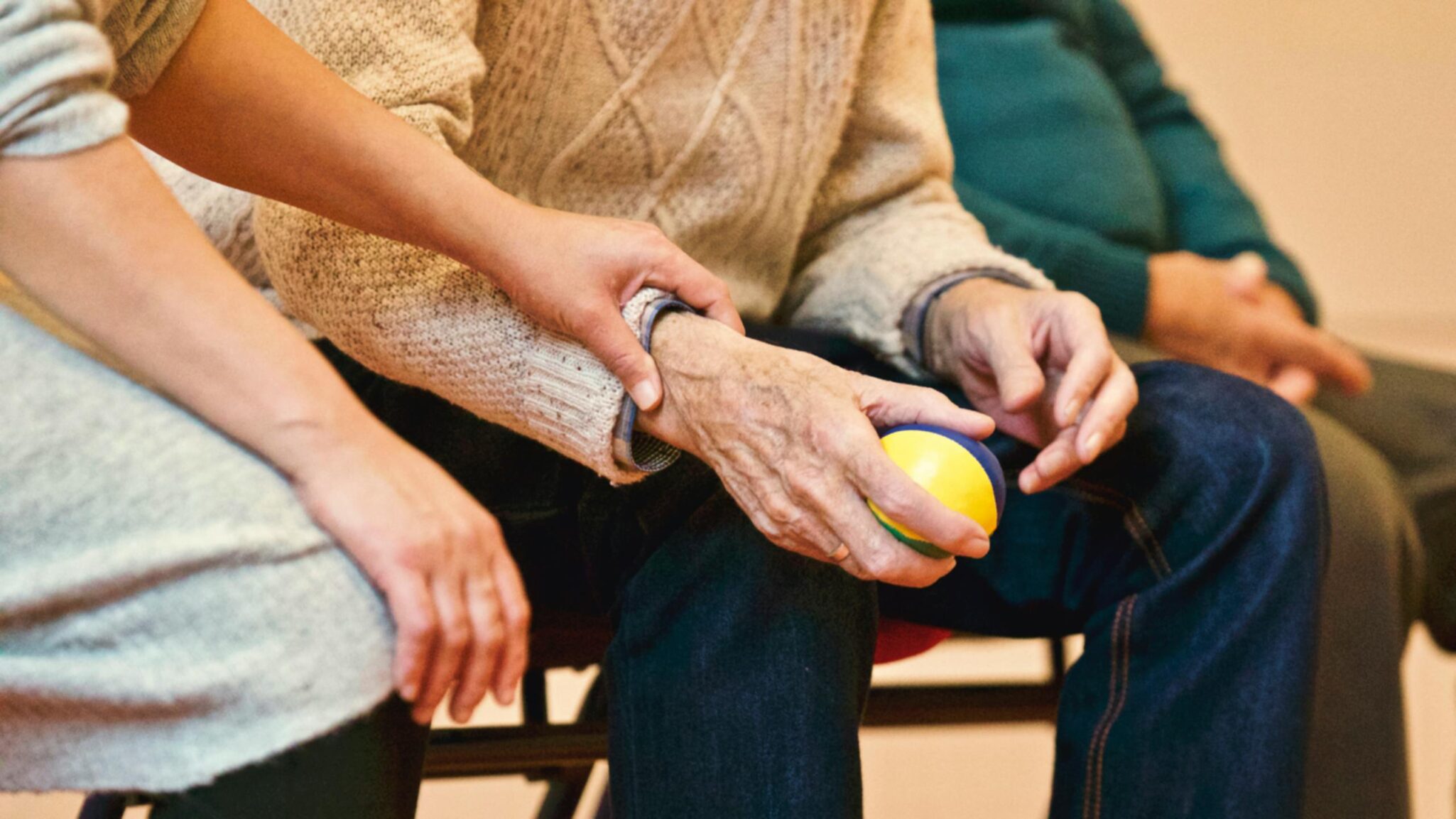Types of Dementia

Dementia isn’t a single condition but is a word that describes several different conditions that all have similar symptoms. People with dementia experience memory problems, cognitive decline, and impairment in judgment, among a variety of other symptoms. Knowing about the different types of dementia can help you and your loved ones better understand your specific symptoms and start making plans for long-term care.
Dementia is becoming more prevalent as adults live longer lives. In past generations, dementia was rarer because many people didn’t live long enough to develop it. It’s estimated that 55 million adults in the world have dementia, and that number continues to grow each year. There are currently more than 100 different diseases that cause symptoms of dementia.
Some change in memory is normal as you age. As you get older, your muscles and bones can get weaker, you become more forgetful, and your sleeping patterns can change. These are all normal markers about where you are in life. Dementia is not a normal part of healthy aging. People with dementia start to develop difficulties not just with memory, but also with communication, attention span, and changes in mood, which are not a part of regular aging.
Alzheimer’s disease is the most common cause of dementia, so you might already be familiar with some of the signs and symptoms. It accounts for about 60 to 80% of all dementia cases. You might not be as familiar with other types of dementia, however. Here’s a look at some other types of dementia and some signs and symptoms to look out for.
Alzheimer’s Dementia
Alzheimer’s disease is the most common type of dementia, affecting 5.8 million Americans as of 2020. The Centers for Disease Control and Prevention (CDC) expects this number to be as high as 14 million people by the year 2060. The majority of people living with Alzheimer’s are adults over 65, but some people can develop it in their 40s or 50s. This is called early-onset Alzheimer’s disease.
This kind of dementia is a progressive disease that starts mildly, but symptoms will worsen over time. It affects the parts of the brain that control key functions, like memory, language, and thoughts. In the beginning, people experience mild memory loss, but eventually can cause people to:
- Get lost in familiar places
- Make poor judgments
- Lose things
- Become anxious or irritable
- Forget words and have trouble communicating
Alzheimer’s dementia can be different from other kinds of dementia because of the way that it affects the brain. One of the first signs associated with this disease is not being able to remember new information, or asking lots of questions. This is because one of the first areas of the brain that’s affected specifically by Alzheimer’s is the one that controls learning.
Experts are still researching Alzheimer’s, including finding the root cause, prevention, and cures. It’s thought that it could be a mix of genetic, lifestyle, and environmental factors all contribute to Alzheimer’s. At the moment, scientists believe that adopting healthy habits earlier in life can help lower your chances of developing this disease later on. Exercising, eating a healthy diet, and not smoking can help decrease your risk factors.
Vascular Dementia
Following Alzheimer’s, vascular dementia is the second-most common type of dementia. It accounts for between 17 to 30% of all dementia cases. This type of dementia occurs when blood flow to the brain is reduced and then causes damage to brain tissue. Reduced blood flow is usually caused by a partial or complete blockage from a blood clot. Other causes can be bleeding from a ruptured vessel during a stroke or damage to blood vessels. Damage can occur because of:
- High blood pressure
- Atherosclerosis
- Infections
- Autoimmune disorders
The onset of symptoms can be a little different compared to other types of dementia. They can be progressive, or start suddenly after an event, like a stroke. They can progress naturally or get worse due to another event that affects brain tissue. The intensity of symptoms can affect individuals differently depending on the location of the tissue damage and how much is damaged.
Signs to look out for include:
- Changes in mood and personality
- Memory loss, though perhaps short-term memory isn’t affected
- Confusion that gets worse later in the day (sundowning)
- Difficulty with movement and balance, or a change in stride
- Symptoms of stroke
Just like with other types of dementia, your risk of developing vascular dementia goes up as you get older. There are certain other risk factors though, as this type is caused by blood clots or vessel damage. People with diabetes, high blood pressure, and high cholesterol are at higher risk. As with Alzheimer’s, healthy habits earlier in life can help reduce your chances of developing vascular dementia.
Lewy Body Dementia
Today, Lewy body dementia could be as prevalent as vascular dementia, according to researchers. It’s caused by a buildup of clumps of proteins, called Lewy bodies, which is the same protein that’s associated with Parkinson’s disease. These bodies grow in nerve cells within the brain in parts that affect movement, thinking, and memory. One million Americans with dementia have Lewy body dementia.
Lewy body dementia symptoms are gradual. While some overlap with other types of dementia, some are specific just to this condition. Common symptoms include:
- Visual hallucinations that can cause you to see, hear, smell, and touch things that aren’t really there
- Trouble sleeping, as people with this disorder tend to act out their dreams as they sleep
- Inability to regulate body functions since the automatic nervous system is affected
- Poor attention, cognitive problems, and disorganized speech
- Depression and apathy
This type of dementia gets worse over time. It can cause people to act aggressively or show symptoms of depression. Some of the physical symptoms are the same as Parkinson’s disease, which can make it hard to complete daily tasks. This also means that people with Lewy body dementia are at higher risk of injury or falling, especially as they age. Lewy bodies can also cause severe mental symptoms of dementia.
Frontotemporal Dementia
Frontotemporal dementia (FTD) is less common than the other types mentioned so far. This name describes a group of diseases that all affect these areas of the brain. The frontal and temporal lobes are associated with language, behavior, and personality, so symptoms will reflect changes in these areas. This kind of dementia occurs when parts of the frontal or temporal lobes shrink. It’s believed that FTD accounts for 10 to 20% of all dementia cases.
FTD can start between the ages of 40 and 65, which is different from other types of dementia. Symptoms include:
- Changes in behavior, such as inappropriate social behavior, lack of inhibition, poor judgment, loss of empathy, and compulsive behaviors
- Problems with speech, such as trouble understanding written and oral language, difficulty building sentences, forgetting word meanings, and hesitancy
- Movement ussies, like tremors, muscle weakness, difficulty swallowing, and muscle spasms
Experts aren’t sure what causes FTD, but they think genetics can play a role. While it is caused by changes in the brain, it is not known why these changes occur. Your risk of developing FTD is higher if you have family members with any kind of dementia. Apart from that, doctors have not discovered any other risk factors yet.
Other Types of Dementia
As mentioned, there are many types of dementia. However, most of them are rare, as the ones mentioned previously account for the bulk of cases. These rarer types can have a lot of the same symptoms as Alzheimer’s or any other kind of dementia, but there are small differences that make each one its own type. They may start in or affect different parts of the brain, triggering different symptoms. Other types of dementia include:
- Huntington’s disease
- CADASIL
- Atypical Alzheimer’s
- Progressive supranuclear palsy (PSP)
- Creutzfeldt-Jakob disease (CJD)
- Normal pressure hydrocephalus (NPH)
These types can be caused by changes in the brain, genes, or other risk factors.
Memory Care Communities by SRG
Senior Resource Group has 19 luxury senior communities across the country that cater to the minds, bodies, and souls of our residents. Each center promotes healthy aging in a number of different ways so that our residents can enjoy this time in their lives. Our memory care centers assist residents with dementia so that they can live in a safe, caring environment while participating in activities and programs designed just for them. Reach out to SRG now to discover healthy aging, our way.




